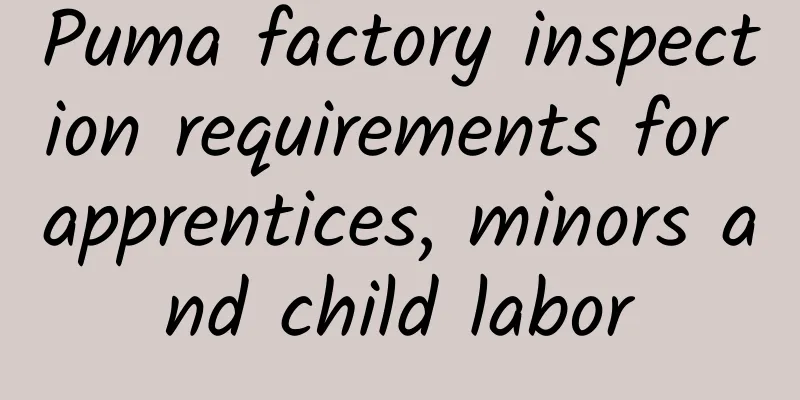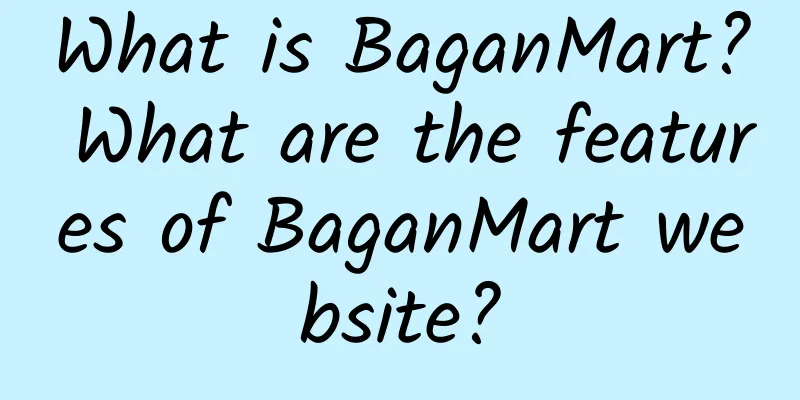Puma factory inspection requirements for apprentices, minors and child labor

|
In addition to health and safety aspects, the social responsibility labor manual published by Puma during its factory inspection also includes requirements for child labor, underage workers, and apprentices of its suppliers. 1. Apprentices: (1) Factories must ensure that all employees hired as apprentices comply with legal requirements, such as working hours (work time used as theoretical guidance), training period (should not exceed the time required by law), salary, working conditions (no contact with harmful substances, no heavy physical labor), etc. (2) The age of apprentices must comply with PUMA's Code of Conduct. (3) The factory should sign a written agreement with the apprentice (and his/her parents), indicating the start and end dates of the apprenticeship period. (4) The apprenticeship program is only applicable to (but not limited to) some skilled positions, such as machine operators, mechanics, electricians, etc. Therefore, positions without special skill requirements should not be included in the apprenticeship program. (5) The total number of apprentices shall not exceed 10% of the total number of factory employees. 2. Regarding underage workers: (1) Factories should arrange for underage workers to register with the local labor bureau. (2) Obtain written permission from parents. (3) In any case, the factory should arrange free medical examinations for underage workers before they start working, and at least once a year thereafter until the worker reaches the age of 18. (4) Factories shall not arrange for underage workers to perform heavy physical work, dangerous work, or work involving contact with hazardous substances. (5) Factories should comply with local laws, such as restrictions on working hours for underage workers (including normal work, night shifts and overtime). 3. On child labor: (1) Factories must not use or support the use of child labor in any of their activities, including apprenticeship programs and subcontracting processes. (2) Once a factory is found to employ child labor, it should take appropriate remedial measures to support the child to complete compulsory education. (3) Factories must ensure that all employees’ personnel files contain valid proof of age. (4) PUMA does not allow home workshops because it cannot effectively control the child labor situation there. |
<<: The reason why Chico's factory inspection consultation is super network
>>: Customer factory audit - Chicos factory audit behavior standards
Recommend
What is chollometro? What are the advantages of posting with chollometro?
What is chollometro? Amazon Spanish off-site chan...
Popular Science | This article will help you understand carbon certification (ISO14064)
Background: Why was the ISO14064 standard establi...
What are some selling tips on eBay?
eBay sellers are worried when they see the number...
What is Asia Union Intellectual Property? What services does Asia Union Intellectual Property provide?
What is AAM Intellectual Property? Shenzhen Yamen...
INSIGHT Project: Lengow’s unique features help you select products and platforms
What is the INSIGHT program? What is the purpose ...
What are the differences between bonded warehouses, supervised warehouses, and ordinary warehouses? What are their characteristics?
The cross-border e-commerce platforms currently i...
ISO14000 series standard features
The ISO14000 series of standards have the followin...
Factory Hygiene Management in BSCI
1.0 Purpose: In order to improve the sanitation of...
International Sustainability and Carbon Certification ISCC Certification Features
ISCC certification is applicable worldwide and co...
What is HostGator? What are the plans?
HostGator was founded in 2002 and is located in B...
What is the difference between PayPal and Paysion?
PayPal: As a long-established payment company in ...
What is the charging model of the eBay platform?
Many seller friends want to open a store on eBay ...
Poccupine — Borderless Payment Gateway
What is Poccupine? Poccupine is an international ...
How has eBay adjusted its logistics policy during the global epidemic?
Before introducing eBay's logistics policy, l...
GRS (Global Recycle Standard) Global Recycling Standard
The Global Recycling Standard GRS certification is...









